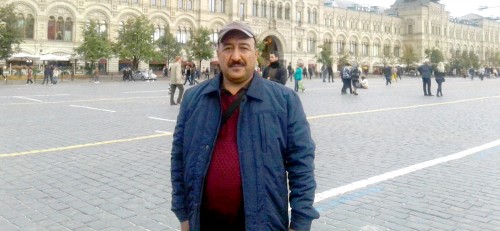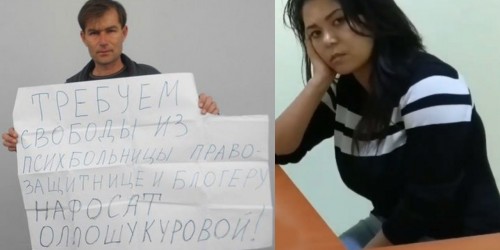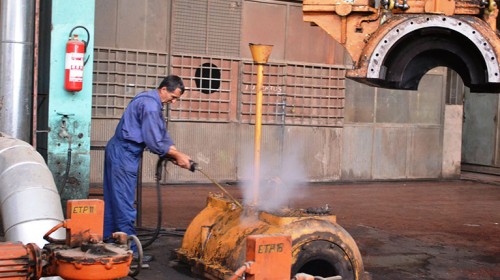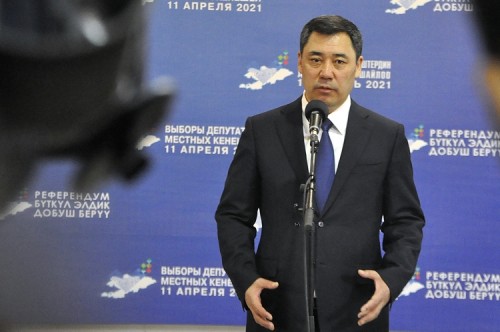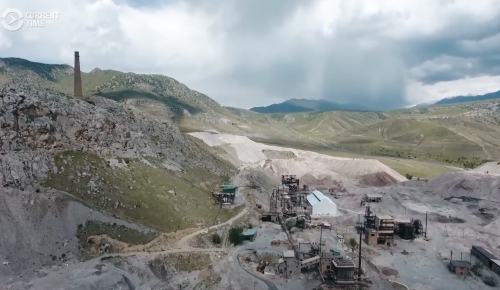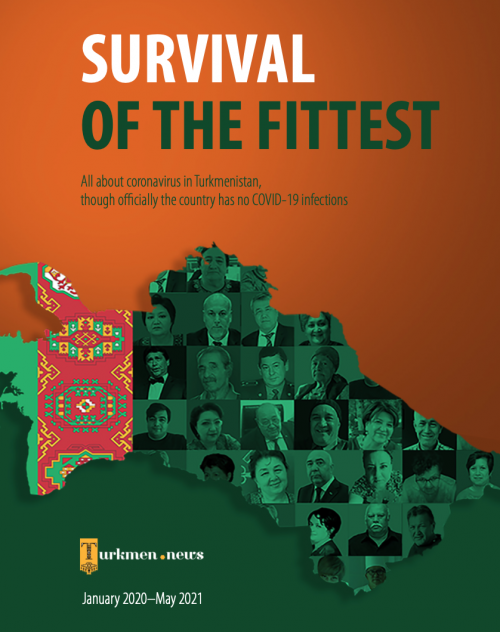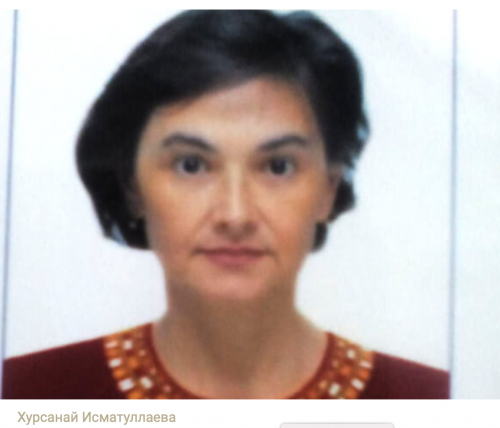Countries
Solidarity campaigns
13 August 2024
Georgia: Support striking workers at Evolution Gaming
5 June 2023
Georgia: Justice for Wolt couriers
10 May 2023
Belarus: Trade union activity is not extremism!
2 November 2019
Kazakhstan: Trade unionist Erlan Baltabay imprisoned - again!
19 November 2018
Kazakhstan: Stop repression and physical attacks on leaders of independent unions; hands off Larisa Kharkova, Erlan Baltabai and Dmitriy Senyavskiy
18 April 2018
MALOKHAT STILL NEEDS YOUR HELP
News
02 November, 2021 / turkmenistan
Five-year Sentence for Turkmen Blogger Who Wrote Poem about Coronavirus
YouTube blogger Murat Ovezov was sentenced to five years’ detention in summer 2020 after he wrote a poem about coronavirus quarantine entitled The Bitter Truth. Ovezov, 48, was convicted of “Fraud” under Article 228 of the Turkmenistan Criminal Code, but turkmen.news sources in Dashoguz region say his remarks on YouTube were the real reason for the case.
21 September, 2021 / uzbekistan
PUNITIVE PSYCHIATRIC DETENTION: UZBEKISTAN’S LASTING LEGACY OF SOVIET REPRESSION
Bagmanyan had no history of mental health problems. Beginning in 2018, he had been battling to save his property from demolition by the Akhangaran city hokimiyat (administrative authorities). He was determined to save two residential homes belonging to his family and a store where he had conducted his business for the past eight years. Bagmanyan’s efforts however were in vain and, according to Bagmanyan, the properties, were demolished without prior agreement or compensation for loss of property or income from his business. His repeated attempts to secure justice were consistently ignored by the authorities who appear to have resorted to the most extreme means to silence him.
17 September, 2021 / International
WHO/ILO: Almost 2 million people die from work-related causes each year
The first WHO/ILO global estimates on disease and injury in the workplace outline the level of preventable premature deaths due to exposure to work-related health risks.
14 September, 2021 / International
ITUC/ETUC letter to Ukrainian authorities over the ongoing regressive labour legislation reform
Here you can find a letter on behalf of the ITUC General Secretary, Ms. Sharan Burrow, and ETUC and PERC General Secretary, Mr Luca Visentini to Ukrainian authorities re draft labour laws.
31 August, 2021 / kyrgyzstan
Kyrgyzstan: ITUC welcomes veto of anti-worker bill
The lawmakers in Kyrgyzstan must use the expertise of its workers’ unions and the ILO to assist in any legislative process to regulate labour relations. This will achieve the best outcome for working people in the country.
24 August, 2021 / uzbekistan
WHY ARE BLIND TEACHERS DISCRIMINATED AGAINST IN UZBEKISTAN?
The involvement of blind and visually impaired teachers in the education system is necessary for the promotion of inclusion in this field of Uzbekistan. But have equal conditions and opportunities been created for them to carry out teaching activities like teachers without disabilities? Together with Dr Abdulla Abdukhalilov, an Associate Professor of Social Work at the National University of Uzbekistan and a Deputy Chairman on Strategic Planning at the Association of Disabled People Uzbekistan, we wrote a joint article at Gazeta.uz (in Russian/Uzbek) to analyse the problem based on the personal experience and successful cases of inclusion in pedagogy.
24 August, 2021 / International
Internet Censorship 2021: A Global Map of Internet Restrictions
Nearly 60 percent of the world’s population (4.66 billion people) uses the internet. It’s our source of instant information, entertainment, news, and social interactions.But where in the world can citizens enjoy equal and open internet access – if anywhere?
In this exploratory study, our researchers have conducted a country-by-country comparison to see which countries impose the harshest internet restrictions and where citizens can enjoy the most online freedom. This includes restrictions or bans for torrenting, pornography, social media, and VPNs, and restrictions or heavy censorship of political media. This year, we have also added the restriction of messaging/VoIP apps.
30 July, 2021 / kyrgyzstan
Kyrgyz Heavy Metal: Inside The Mercury Mine Of Aidarken
The huge mercury mine at Aidarken in Kyrgyzstan once supplied the entire Soviet Union. It now produces a fraction of its former output, with many of its shafts still filled with floodwaters that took it out of service from 2009 to 2019.
26 July, 2021 / turkmenistan
“Survival of the Fittest.” Turkmen.news Presents Independent Report on Coronavirus in Turkmenistan
For more than a year now Turkmenistan’s government has declared the country free of coronavirus. They feed this story not only to their own people, who are already used to the authorities covering up problems and openly lying, but also to the entire international community – the UN, including the WHO, and foreign governments. The Turkmen government is essentially disregarding its own people and their health, and by lying to the international community and presenting inaccurate epidemiological data, it is putting the health of the whole world at risk.
20 July, 2021 / turkmenistan

